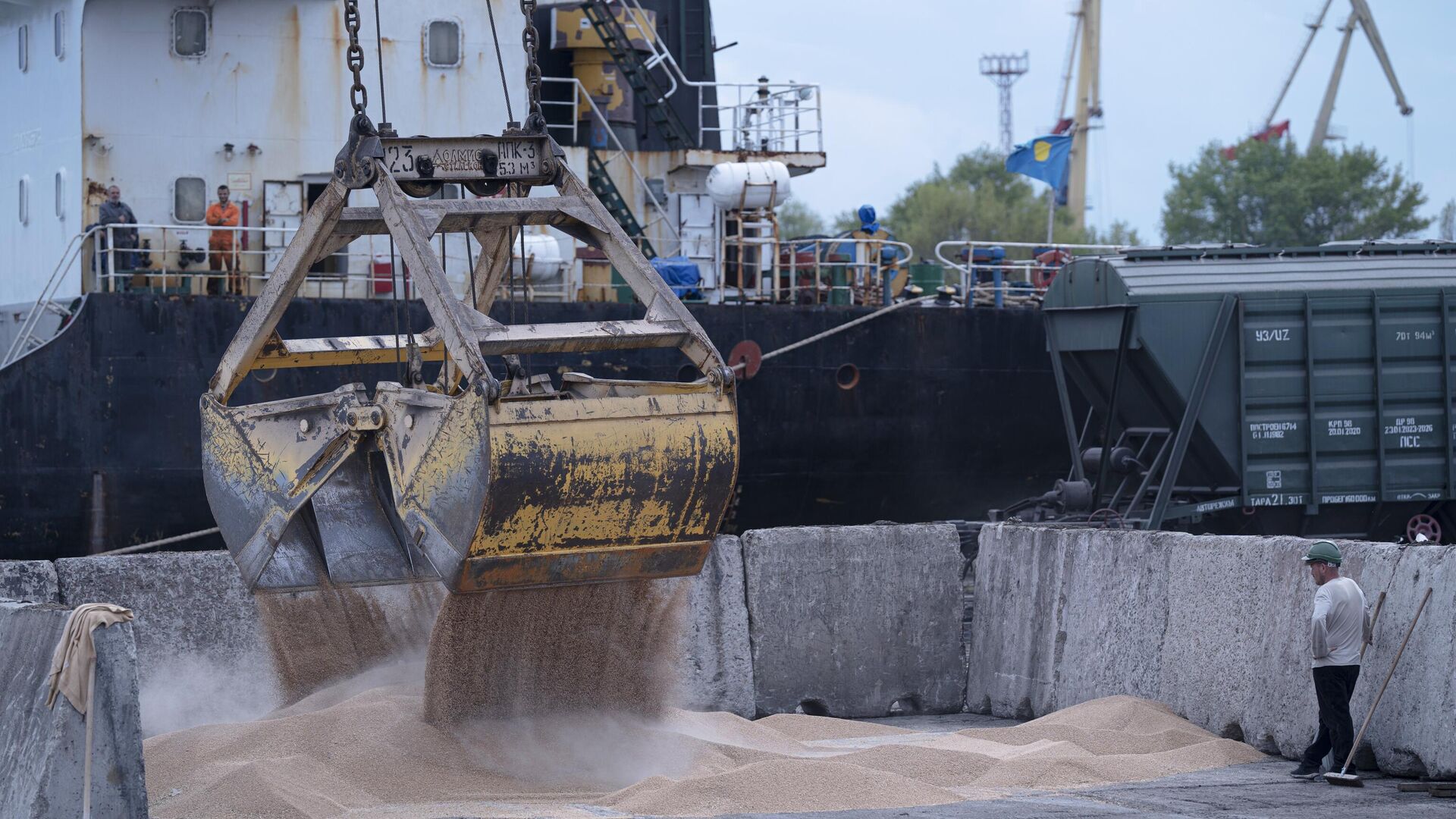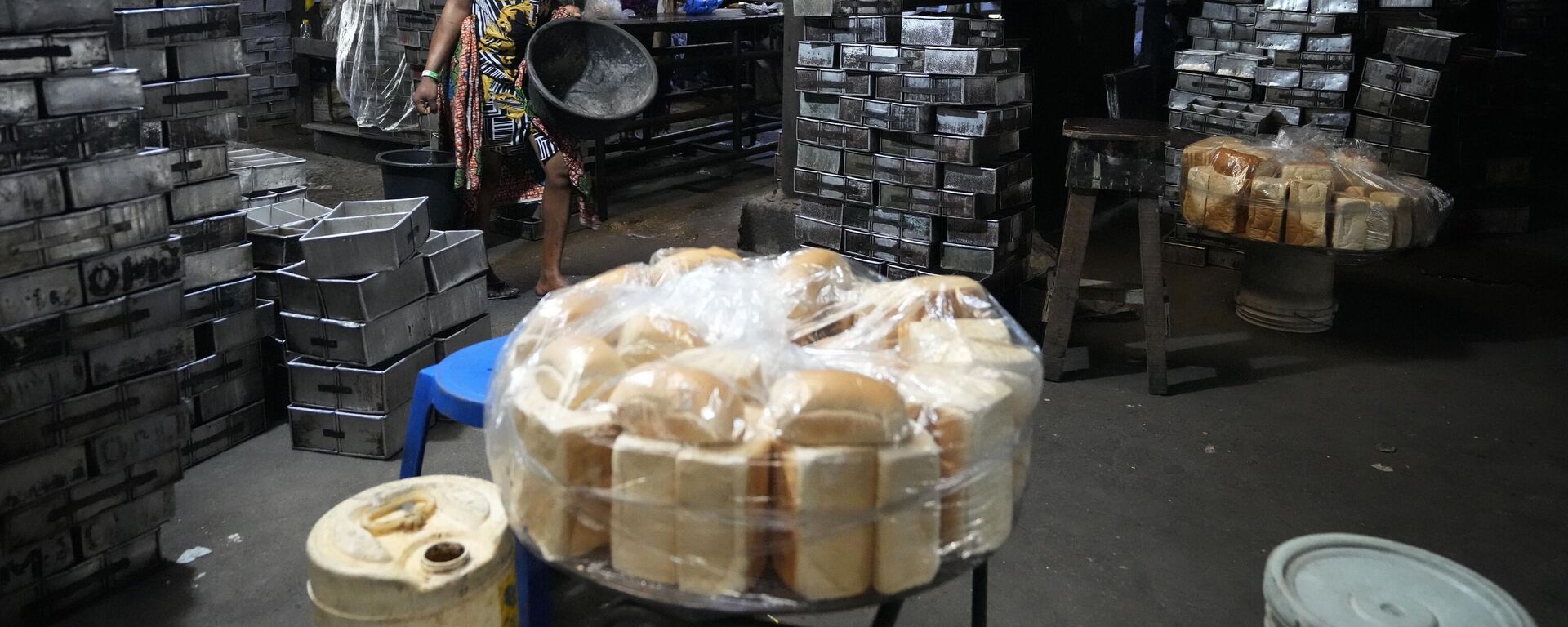Decision on Grain Deal's Extension Will Be Driven by Russia's Interests, Foreign Ministry Says
16:30 10.06.2023 (Updated: 10:49 03.08.2023)

© AP Photo / Andrew Kravchenko
Subscribe
On Friday, Geneva hosted a new round of talks between Russia, represented by Deputy Foreign Minister Sergey Vershinin, and the UN, represented by Secretary-General of the UN Conference on Trade and Development Rebeca Grynspan, on the memorandum on Russia's agricultural exports within the Black Sea Grain Initiative.
The decision on whether to extend or not the Istanbul grain deal will be made only based on Moscow's interests, Russian Deputy Foreign Minister Vershinin told reporters following the talks at the UN headquarters in Geneva.
"I think that under any circumstances we should be guided by a clear understanding of the interests of the Russian side. This is what we will be driven by," he said, asked whether Russia is going to extend the grain deal after July 18 if things remain as they are.
Vershinin noted that Russia is still disappointed by the non-implementation of the memorandum with the United Nation on unblocking Russian agricultural exports under the UN-mediated Black Sea grain deal.
"This time, we have also considered all these issues in detail. In essence, I must say, our assessments have not changed. We cannot be satisfied with the way this memorandum is being implemented," he stressed.
According to the diplomat, despite all the statements that regularly come from Western capitals, the barriers for Russian agricultural exports via the Black Sea are still in place. He explained that there are still obstacles when it comes to transactions, supply of spare parts, insurance and reinsurance of cargo on Russian vessels at European ports. Therefore, he underlined, in essence this part of the package, which forms the Istanbul agreements of July last year, is not being implemented.
In particular, he pointed at the fact that Rosselkhozbank, Russia's bank specializing in agricultural transactions, remains barred from SWIFT.
"And of course, the significant thing that we asked for, demanded, is reSWIFTing Rosselkhozbank. Essentially, today the UN recognized that such reSWIFTing, such actions stumble upon a total wall of negativity from those who make decisions in the European Union and other Western capitals," he said.
Vershinin described this stance of the Western countries as "hypocritical" and "two-faced," since, in his opinion, there is a very big difference between the words about alleged exemptions for Russian agricultural exports and the real state of affairs.
At the same time, the diplomat emphasized that Russia is willing to continue dialogue with the United Nations on the fulfillment of the Black Sea Grain Initiative's memorandum aimed at unblocking Russian agricultural exports if these talks bring tangible results.
"The dates [of future talks] are not yet known. We hold consultations on a regular basis. We are not the type of people who lose their temper. We want to get real results for Russia. For the sake of these results, we are ready to continue the dialogue, but this dialogue, I repeat, must be productive. So far, unfortunately, it is not," Vershinin stated.
The Black Sea Grain Initiative, signed on July 22, 2022 by representatives of Russia, Turkey, Ukraine and the UN, has allowed for export of Ukrainian grain, food and fertilizers via the Black Sea from three ports, including Odessa. Russian President Vladimir Putin pointed out in September that the West exports most of the Ukrainian grain to European states, and not to countries facing food shortages, in particular those in Africa.
The package agreement also includes a memorandum of understanding between Russia and the UN to unblock Russian grain and fertilizer exports via the Black Sea. Among other things, it provides for reconnection of the Russian Agricultural Bank to SWIFT, resumption of supplies of agricultural machinery, spare parts and services, and restoration of the Togliatti-Odessa ammonia pipeline. According to Moscow, this part of the package agreement has not been implemented due to Western sanctions.

